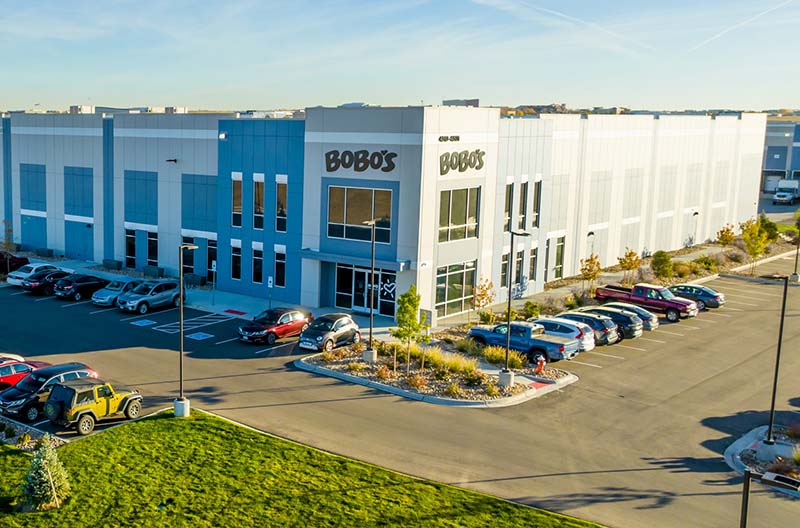Bobo’s has launched a new wind-powered production facility in Loveland, Colorado.
To help meet growing customer demand, the facility will increase Bobo’s production of its bars, bites and toaster pastries by more than three times while reducing the company’s carbon footprint. Bobo’s seeks to achieve carbon neutrality by December.
“It’s truly amazing to think back to when my daughter, Bobo, and I baked that first batch of oat bars in my kitchen,” said Beryl Stafford, founder.
“It’s extremely rewarding to see how far we’ve come today as we stay true to that same home-baked, handmade quality, only now in 24 ovens. All of which produce the same yummy snacks made with the same wholesome ingredients and the same delicious taste and texture as that first oat bar in 2003. As we have scaled our production from my kitchen to this new ‘super’ bakery, through it all it’s remained paramount that we maintain the quality of our products.”
Bobo’s has invested to increase the speed and efficiency of its baking capabilities without changing the products’ handmade look and feel. Its baking equipment includes automated equipment that tamps the bars into the signature Bobo’s pan. One of these machines, nicknamed “the Bobot,” was designed to replicate Bobo’s handmade look and texture. The new bakery has the ability to produce one million bars, bites or toaster pastries a day and the company has plans in place to further increase capacity.
“This day is more than two years in the making,” said TJ McIntyre, CEO. “We’re thrilled to officially open our incredible new ‘super bakery’ today, and to continue to support the growing, nationwide consumer demand for Bobo’s products. We’ve brought our entire operation, including production and packaging, under one extremely efficient, wind-powered roof to produce a product true and authentic to Beryl’s original vision that began years ago in her own kitchen.”
In addition to being powered entirely by wind, the new Bobo’s Bakery has also achieved more than 95 percent diversion of its solid waste from the landfill through a waste management program. Further, its has plans to purchase carbon offsets. The opening of the new bakery consolidates three previous facilities into one operation, reducing internal CO2 emissions.

